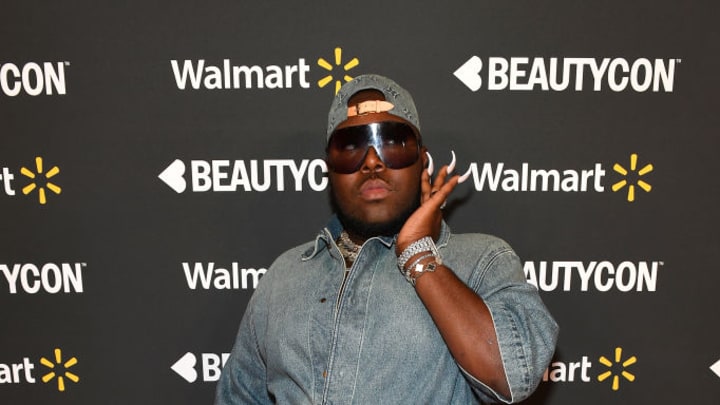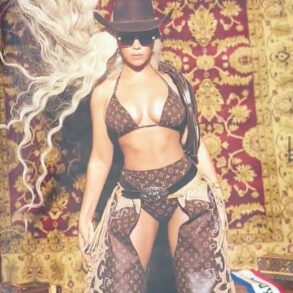In the world of hip-hop, black male sexuality has often been portrayed through a narrow lens characterized by hypermasculinity, homophobia, and misogyny. However, a new wave of artists has emerged in recent years, challenging these stereotypes and celebrating the intersectionality of black male sexuality. This evolution within the hip-hop genre highlights the complex interplay of race, gender, class, and other factors that shape an artist’s identity and experiences.
Many artists in the hip-hop community are engaging in a conversation about the intersectionality of Black male sexuality and authenticity. This dialogue is pushing the industry to evolve and become more inclusive of diverse perspectives and experiences. It’s exciting to see more and more rappers openly expressing their true selves without fear of backlash or prejudice. Some of these artists have been embraced by fans and families alike, paving the way for a more accepting and diverse hip-hop culture.”
One of the most prominent figures in this movement is Lil Nas X. In 2019, he courageously came out as gay, and since then, he has been a trailblazer for authentic self-expression. His album Montero is a testament to this journey, with songs that delve into themes of coming out, self-love, religion, and relationships.
His “Montero (Call Me By Your Name)” music video challenged societal norms and encouraged queer youth to embrace their true selves.




Tyler, The Creator, another influential artist, has been hinting at his bisexuality in his music since his 2017 album Flower Boy. He has expressed his sexuality fluidly and ambiguously, emphasizing that labels are restrictive. His performance at the 2020 Grammy Awards, wearing a pink suit and a blonde wig, underscored his commitment to redefining boundaries within the genre.




Frank Ocean has been a trailblazer when it comes to openly discussing his sexuality and relationships through his music. In 2012, he made a bold statement by publicly identifying as bisexual, which was a significant moment for the LGBTQ+ community. Since then, he has consistently offered a unique perspective on these topics.
His albums Channel Orange and Blonde feature songs that are highly personal and honest, touching on his experiences with both men and women. The way he blends genres, from R&B to hip-hop to indie, has garnered him critical acclaim, and he has collaborated with some of the biggest names in the music industry, like Jay-Z, Kanye West, Kendrick Lamar, and Tyler, The Creator. Ocean’s music is praised for its genre-bending style and its vulnerability and authenticity that resonate with his fans.




Santana started his career as a makeup artist for the Florida-based rap duo City Girls and began rapping in 2019 as a theme song for his podcast. His 2020 single “Walk” spawned a popular TikTok challenge, and his singles “Here We Go” and “Material Girl” also gained popularity on the platform. His debut studio album, Keep It Playa, was released in 2021.
Saucy Santana, an openly gay rapper, has become a prominent voice for the LGBTQ+ community within the hip-hop industry. His music and flamboyant style have gained recognition and praise from influential artists, making him an influential figure.
Frank Ocean and Lil Nas X have been instrumental in the transformation of the music industry in recent years. By openly discussing their sexual and racial identities, they have inspired countless individuals to embrace their true selves, regardless of societal norms or expectations. Their courage and authenticity have sparked important conversations about diversity and acceptance within the genre, paving the way for a more inclusive and representative future. Their influence is undeniable, and their legacy will continue to shape the music industry for years to come.
As hip-hop evolves, it is crucial for the genre to accurately represent the diverse experiences and identities of its artists and audience. The intersectionality of Black male sexuality is a significant factor in creating a more inclusive, authentic, and dynamic hip-hop culture. Stay tuned as this narrative unfolds, redefining the essence of authentic hip-hop.
The evolution of black male sexuality within hip-hop is breaking free from stereotypes and celebrating diversity. These artists, among others, are reshaping the narrative of black male sexuality in hip-hop. Their courage to be authentic inspires fellow artists and fans to embrace their identities without fear or shame. By exploring the intersectionality of black male sexuality, these trailblazers are pushing the boundaries of hip-hop music and culture.
Comparing the Migos members’ solo albums. Comparing the Migos members’ solo albums. dark. Next
This post was originally published on this site be sure to check out more of their content.








